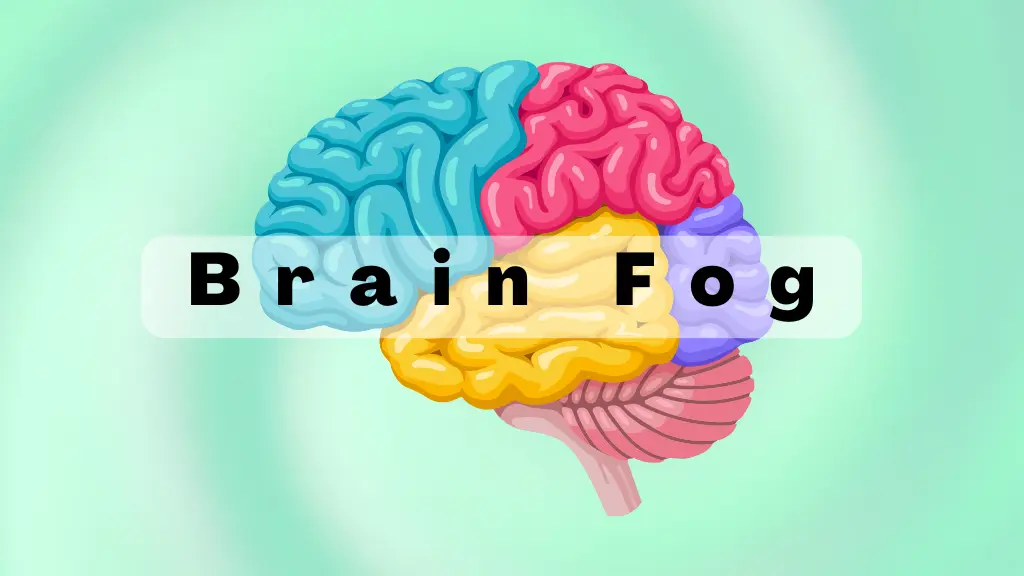Anyone who suffers from allergies knows how frustrating the symptoms can be. Sneezing, runny nose, itchy eyes – these are common signs of an allergy flare-up. But there’s another symptom that’s often overlooked: brain fog.
You may feel mentally sluggish, have trouble concentrating, or experience memory lapses. But why do allergies cause this “brain fog,” and how can you deal with it?
In this article, we’ll explore the connection between allergies and brain fog, how allergens affect the brain, and offer tips for managing this cognitive dysfunction during allergy season.
You May Also like: Is There a Downside to Going Gluten-Free if You’re Healthy?
What Is Brain Fog?
Before we dive into the causes of brain fog, it’s important to understand what it is. Brain fog isn’t a medical term but refers to a collection of cognitive symptoms. People experiencing brain fog often describe feeling mentally cloudy, forgetful, or distracted.
Symptoms of brain fog can include:
- Difficulty concentrating
- Memory lapses or forgetfulness
- Mental fatigue
- Trouble finding the right words
- Slower thinking or processing
It’s a frustrating experience that can affect your daily life. For those with allergies, it can be an ongoing challenge during allergy season or flare-ups.
The Link Between Allergies and Brain Fog
The connection between allergies and brain fog lies in how allergens affect your body, particularly your immune system. When you’re exposed to allergens like pollen, dust, or pet dander, your immune system reacts by releasing histamine and other chemicals. These chemicals can trigger inflammation, not just in the nasal passages or skin, but also in the brain.
Here are the key mechanisms through which allergies cause brain fog:
1. Inflammation in the Brain
Allergens can cause systemic inflammation, which means that inflammation spreads throughout the body. This includes the brain. Inflammation in the brain is often referred to as neuroinflammation. When the brain becomes inflamed, it can impact cognitive functions like concentration, memory, and decision-making.
Studies show that people with chronic allergies, especially those who suffer from allergic rhinitis (hay fever), experience higher levels of pro-inflammatory cytokines in their blood. These molecules contribute to inflammation, and in turn, can impair cognitive performance.
2. Histamine Release and Brain Activity
When you’re exposed to allergens, your immune system releases histamine as part of its defense response. Histamine plays a role in inflammation and is responsible for the typical allergy symptoms we all recognize – itching, swelling, and sneezing. However, histamine also has a direct effect on the brain.
Histamine helps regulate various brain functions, including alertness and focus. When your body releases too much histamine due to allergies, it can overwhelm the brain’s natural processes, leading to feelings of brain fog. This imbalance can cause fatigue, lack of focus, and impaired thinking.
3. Sleep Disruptions Due to Allergies
Allergy symptoms, like nasal congestion or coughing, can disrupt your sleep. When you don’t get a good night’s rest, it can exacerbate brain fog. Sleep is essential for memory consolidation and cognitive function. Without adequate sleep, your brain struggles to process information, and mental fatigue sets in.
For those with chronic allergies, poor sleep quality can be an ongoing problem, leading to more frequent episodes of brain fog.
What Other Allergy Symptoms Contribute to Brain Fog?
In addition to histamine and inflammation, other common allergy symptoms can also play a role in mental fatigue and cognitive dysfunction.
1. Fatigue
When your body is constantly battling allergens, it can be exhausting. The immune system works overtime to fight off what it sees as harmful invaders, leaving you feeling worn out. Chronic fatigue from allergies can make it harder to focus and think clearly, further contributing to brain fog.
2. Sinus Congestion and Pressure
Allergy-induced sinus congestion is another contributor to brain fog. When your sinuses are blocked, it can affect blood flow to the brain. This can cause feelings of mental sluggishness and difficulty concentrating. Additionally, sinus pressure can lead to headaches, which can worsen cognitive difficulties.
3. Dehydration
Allergies can cause dehydration in a few ways. First, excessive nasal drainage can result in fluid loss. Second, antihistamines, commonly used to treat allergy symptoms, often have dehydrating side effects. Dehydration can contribute to mental fatigue, confusion, and difficulty focusing.
How to Alleviate Brain Fog Caused by Allergies
While brain fog during allergy season can be annoying, there are several ways to manage it. By taking steps to address both your allergy symptoms and the cognitive effects they cause, you can improve your mental clarity.
1. Treat the Allergies Themselves
The first step in reducing brain fog is to address the underlying allergies. Over-the-counter antihistamines, nasal sprays, and decongestants can help reduce allergy symptoms like sneezing, congestion, and itchy eyes. This can, in turn, reduce the inflammation and histamine release that contribute to brain fog.
For more severe or chronic allergies, you may need a prescription medication or immunotherapy (allergy shots) to desensitize your body to allergens. A doctor or allergist can help determine the best treatment plan for your specific needs.
2. Improve Your Sleep
As mentioned earlier, allergies can interfere with sleep. To improve your sleep quality, consider using a humidifier in your bedroom to ease congestion. You can also try elevating your head while sleeping to help with nasal drainage.
Ensuring a consistent sleep routine can also improve your overall rest, which in turn helps your cognitive function. Aim for 7-9 hours of sleep each night to combat the fatigue that worsens brain fog.
3. Stay Hydrated
Drinking plenty of water can help alleviate the dehydrating effects of allergies and antihistamines. Staying hydrated supports brain function and can help you think more clearly. Aim to drink at least eight 8-ounce glasses of water per day, and more if you are active or experiencing severe allergy symptoms.
4. Manage Stress
Stress can make brain fog worse. When you’re stressed, your immune system may be more reactive to allergens, and your mental clarity can decline. Try to manage stress through activities like yoga, meditation, or deep breathing exercises. Relaxation techniques can also help lower inflammation and improve overall health.
5. Consider Diet Changes
Certain foods may help reduce inflammation and improve brain function. Omega-3 fatty acids, found in fatty fish like salmon and walnuts, have anti-inflammatory properties that can help with allergy symptoms. Foods rich in antioxidants, such as berries, leafy greens, and nuts, can also support brain health and reduce oxidative stress in the body.
Conclusion
Brain fog caused by allergies is a frustrating but common symptom. Allergens can affect your brain through inflammation, histamine release, and sleep disruptions, all of which contribute to mental fog. However, by properly managing your allergies, improving your sleep quality, staying hydrated, and adopting a healthy lifestyle, you can reduce the impact of brain fog.
If you’re struggling with allergies and brain fog, speak to a healthcare professional. They can help you identify the best treatments for your allergies and provide strategies to improve cognitive function. Don’t let allergies cloud your mind – take control and get the relief you deserve.
Key Takeaways:
- Allergies can cause brain fog due to inflammation, histamine release, and sleep disruptions.
- Treating allergy symptoms and managing your sleep can help improve mental clarity.
- Staying hydrated, managing stress, and eating anti-inflammatory foods can also reduce brain fog.











[…] You May Also Like: Why Do Allergies Cause ‘Brain Fog’? […]